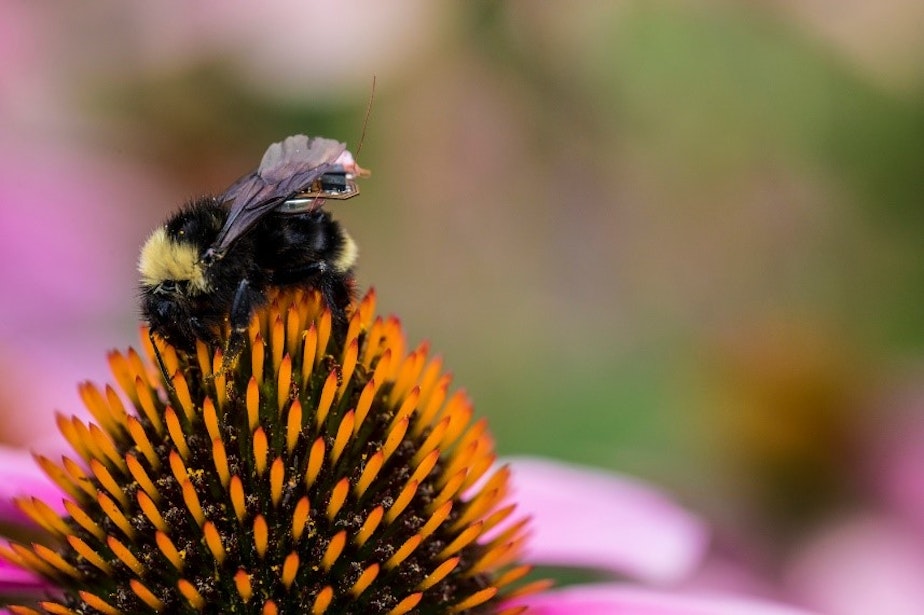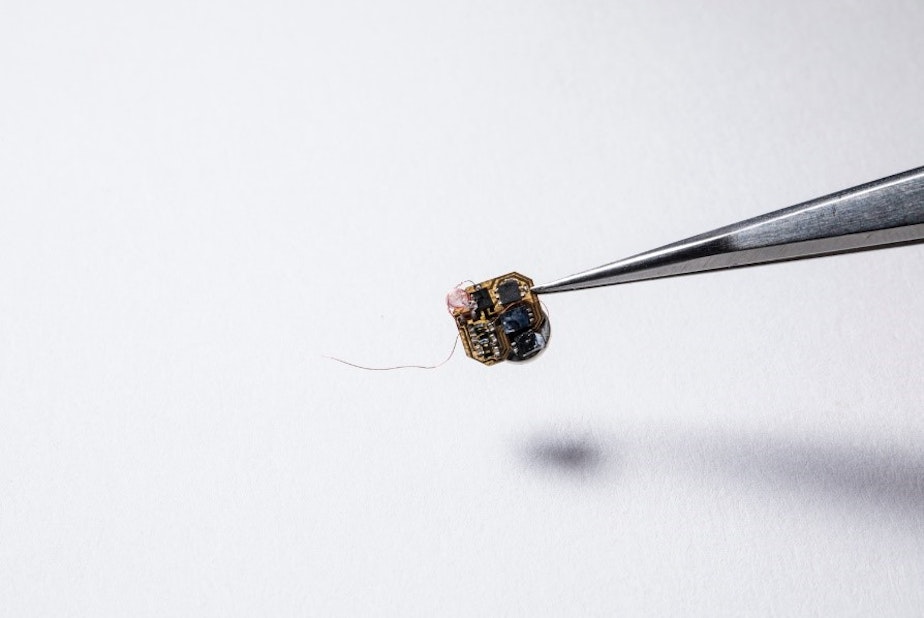These UW bees wear tiny backpacks to help local farmers

Bees have plenty enough to do—forage, pollinate, and feed their young. But soon they could be helping farmers in a high tech way.
UW researchers have developed a backpack sensor that’s mounted on bumblebees to collect data on their environment.
Vikram Iyer is a Ph.D student and is part of the team at the School of Electrical and Computer Engineering that developed the sensor. He says the bumblebee is the perfect candidate to wear the sensor: It’s used to carrying nectar and pollen.
This extra load weighs a little over 100 milligrams, the equivalent of seven grains of uncooked rice.

Sponsored
Iyer says the sensor will capture data that’s useful for farmers.
“We can monitor things like temperature, humidity or light levels which are useful for places like farms,” he said.
Iyer says the data could help in the study of bees, too.
“This also tells us what areas they might be pollinating,” he said. “They may also have some insights into which plants are healthy and that they’re more attracted to, which is also important information.”
Some farmers use drones to gather information, but they run for about 20 minutes before they need to be recharged.




